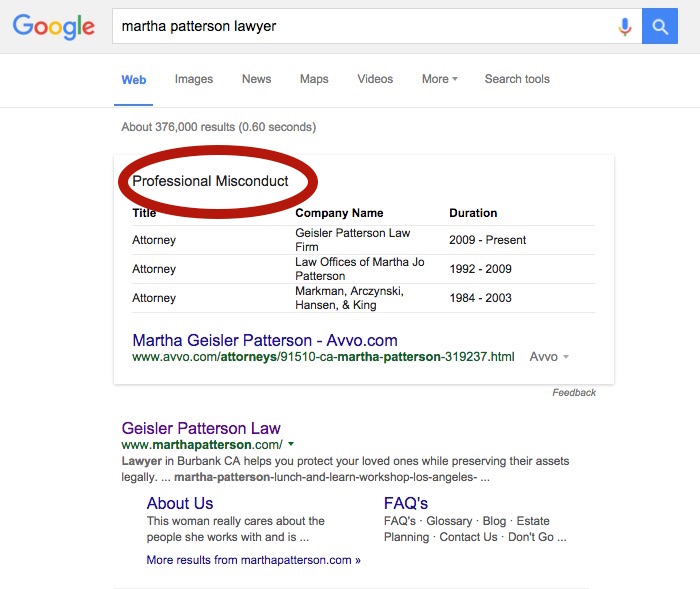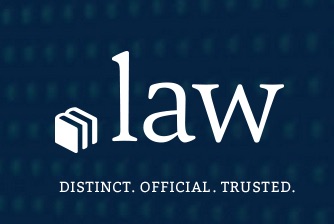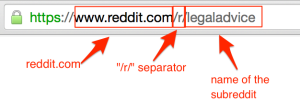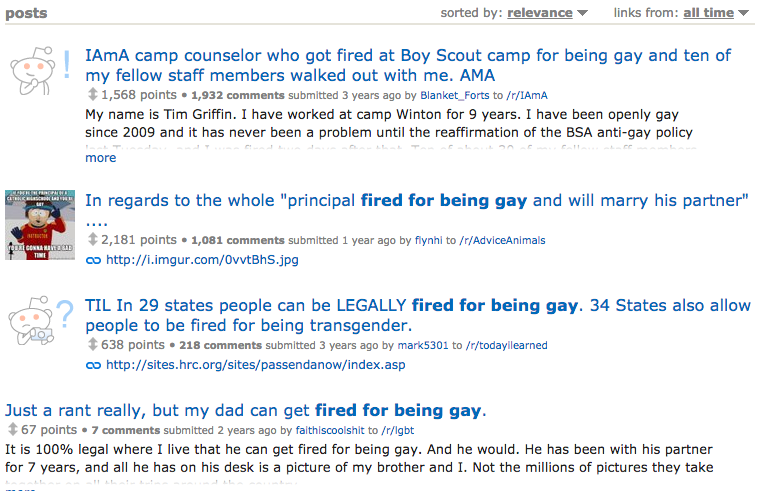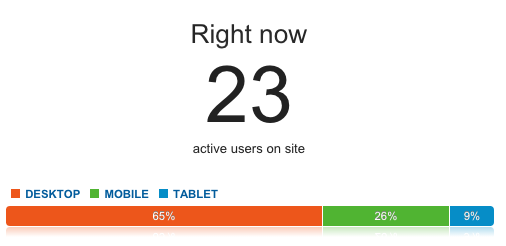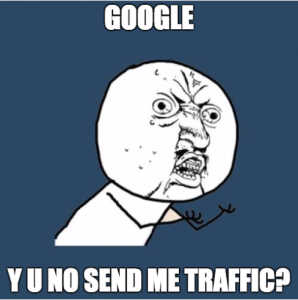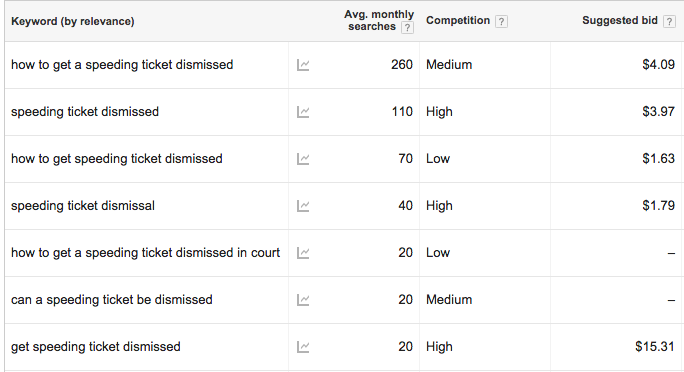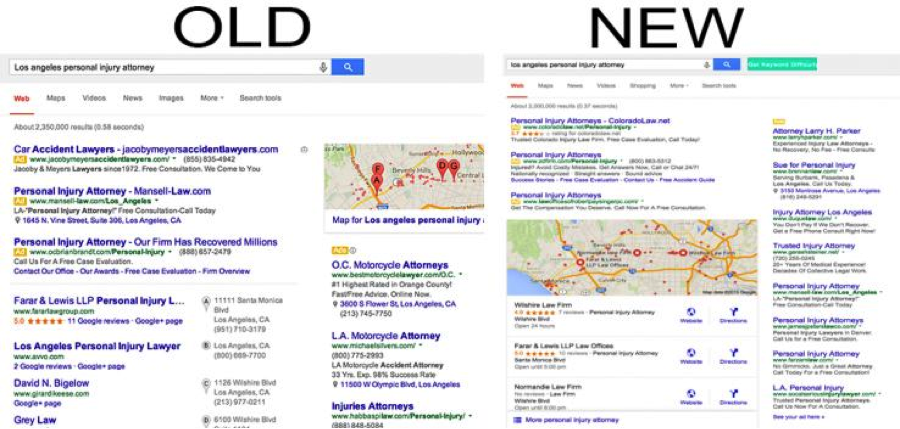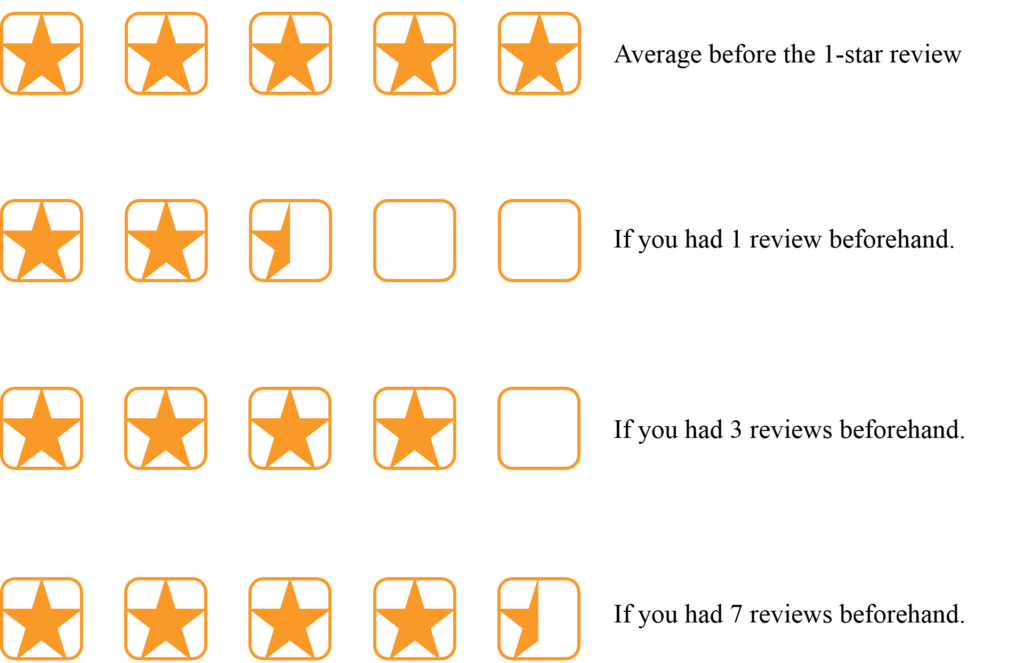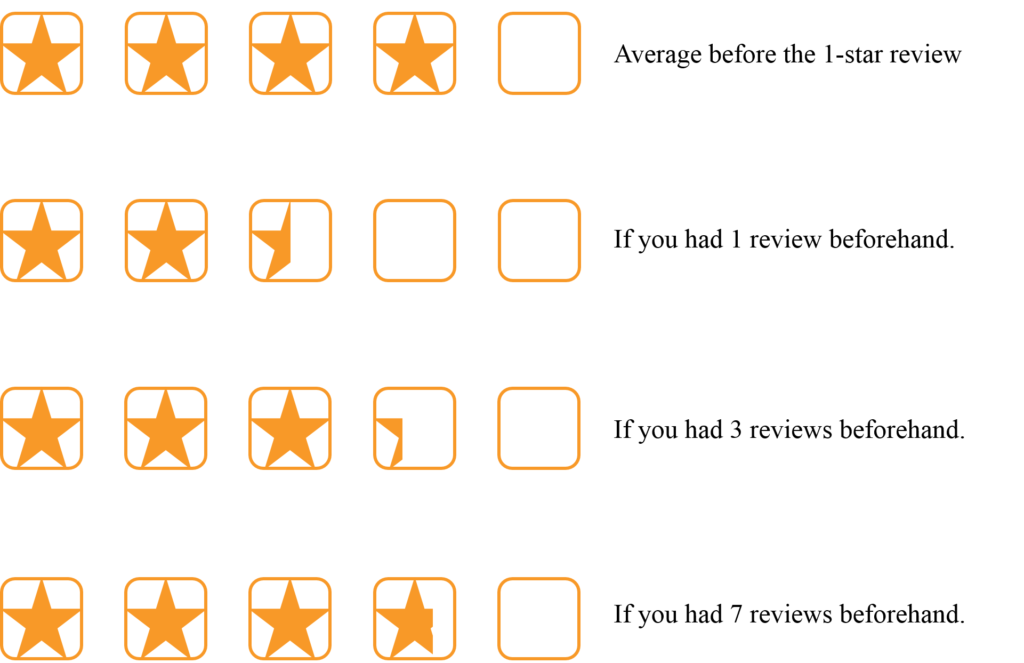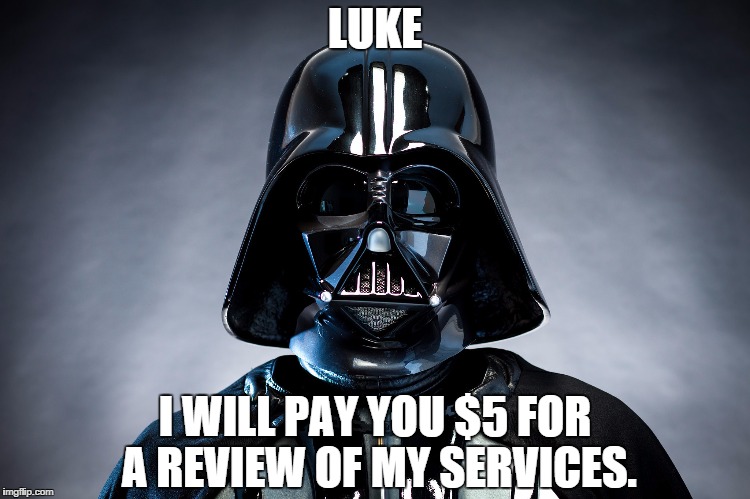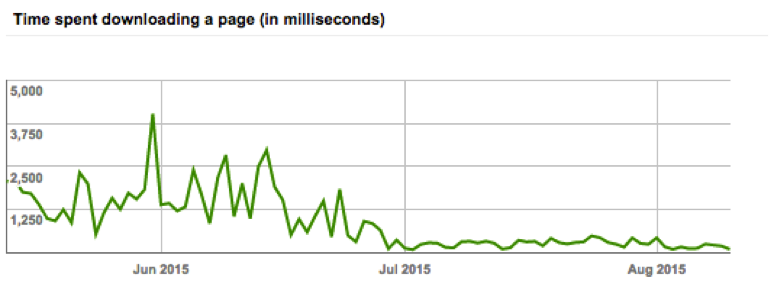You may have heard that content is an essential element to driving traffic to your site. The problem is that most content out there just doesn’t cut it. You need to create unique and engaging content will make people want to share and/or link to it–the kind of content that Google notices and rewards websites for.
The question is, how do you get those links? As an attorney, it can seem like a struggle, especially when content from other “sexier” verticals are vying for attention, shares, and those ever elusive links. As an attorney, however, you have knowledge and expertise that, if presented properly and with the right timing, can be extremely successful.
Below are some tactics we’ve seen that could be the the ticket to driving more quality traffic to your website:
Write an Op-Ed piece About a Big News Story
As a lawyer, you have a unique opportunity to contribute your expertise to a specific issue or topic that people are talking about about on the news.
Here are some Op-Ed headlines that come to mind:
- The big question about [New Law] that hasn’t been answered.
- What the plaintiff in [Recent Controversial Lawsuit] needs to prove in order to win.
- 5 Reasons Why [New Proposed Law] will be difficult to enforce.
While many attorneys write about the news, most of what I’ve seen is a rehash of the story, lightly peppered with a few comments and opinions. Instead, write a piece that offers a real argument, and spends 750-1000 words supporting your argument with examples and evidence. Make it compelling, unique, and accessible. You can publish these op-ed posts on your own blog and share it on reddit, Facebook, or other social media channels. Also, in addition to writing about news stories on your own firm’s blog, you can reach out to local reporters and offer yourself up as a source to provide a legal perspective. This is usually easier to do if you have a few successful posts under your belt.
Use PR to Promote One of Your Own Big Cases
Are you working on a case that you believe has the potential to make the news? If so, you may want to consider doing some PR.
Let’s say you’re an employment lawyer working on a whistleblower case that you believe has some legs. Get in touch with a PR professional whom you trust to get an idea if journalists would want to pick up your story. If you don’t know anyone in PR, make sure you get a recommendation from a professional who will give you an honest opinion about your story (and not just bill you for their time).
If you want to make the most of your case’s publicity, be sure to create a webpage on your site dedicated to the case, with all formal complaints and official court documents available in one place so reporters don’t have to hunt for them. Also, post links to supplementary materials that relate to the area of law that the case is related to, preferably something from your own site is best but also be sure to include anything from an external website that could shine light on your topic. Essentially, you need to make a page so good, complete, and comprehensive that it would be silly for a reporter, blogger, or anyone talking about the case to NOT want to link to it.
When your story starts taking off, request that your PR person notifies you about every online publication that happens to pick up your story. If you manage to get on a high traffic site, see if you can’t find a way to participate in the discussion in the comments section–which can be a good way for you to drop a link to your resource page on the case if it already isn’t there in the body of the article.
Give a Legal Perspective About Your Favorite TV Show or Movie
You remember when Bane held the entire city of Gotham in The Dark Night Rising? Maybe you could write up a compelling reason for how that villain has a valid criminal insanity case, should it ever be brought up in court. Oh yeah, and when you’re done, see if you can post it to lawandthemultiverse.com and get a link back to your site!
Perhaps you’re a Harry Potter fanatic, and have read all of the books from front to back 5 times. How easy would it be to write down a list of all the laws that you can find in the non-muggle world and then submit that list to Reddit and promote that list through Facebook?
Are you an employment lawyer? You could spend a couple of weekends tallying down all the possible cases for harassment or wrongful termination in shows like AMC’s Mad Men or NBC’s The Office. Or, if you were really ambitious, you could create a chart comparing all shows that take place in an office made in the last 10 years. Do something like that, and you’ll probably never need to build another link again.
Chances are you have an interest or hobby that overlaps with your expertise in the law. This gives you an opportunity to tap into a much larger audience who will share and link to your content.
Provide a Comprehensive Resource Focusing on a Frequently Asked About Topic
While most Google searches will turn up an article or resource that provides the information you’re looking for, oftentimes it doesn’t provide content to the level of depth, detail or quality that you need. For example, while there are plenty of pages out there about how to file a workers compensation claim in a particular state, how many law firm websites provide a comprehensive resource with all the forms and special instructions for filing out certain form fields in one place? If you fill that content gap by creating such a resource on your website, that resource could eventually become the go-to page for anyone who needs to fill out a workers comp claim.
When creating an online resource, put yourself in the shoes of your clients. A comprehensive resource that gives potential clients a good idea about their situation will not only help prospective clients gain confidence in your knowledge as an attorney but is also a good signal to the search engines that you’re providing great content and that your site is worthy of ranking and getting traffic.
Unfortunately, if your site doesn’t have many links to begin with, chances are a lower quality resource on a more established site is likely to rank higher than what you’ve created. This is why it’s important to reach out to owners of other websites who may want to link to your resource. While outreach is beyond the scope of this article, you should check out this great resource from Page One Power.
Create a Community Page
One of the easiest and most effective things a law firm can do to get links is through the relationships that you already have in your community. What organizations and non-profits does your firm support? Show them a little love!
Create a page giving testimonials for local organizations and vendors you do business with and link to them. These might include:
- Community Theaters and Arts Organizations
- Local expert witnesses you work with.
- Charity Runs/Walks/Bike Rides
- Trade organizations
- Labor Unions
- Legal Organizations (The National Lawyers Guild, National Academy of Elder Law Attorneys, Local Bar Associations)
- Small businesses (possibly former clients)
- Local Chapters of National Charities (Toys for Tots, United Way, Special Olympics)
- Pro-bono work for local businesses or non-profit organizations
- Organizations or clubs (even a recreational club like a sailing club) where a firm member is a board member (You can link to the firm from the bio page. “Attorney smith is a partner at Smith & Smith PLLC”
- Art purchased for the firm (Take a picture and send to artist and they may link back to the site).
- Local businesses your work with. This includes
- Service Providers: Janitors, Electricians, Moving Companies, Painters, Plumbers, Carpenters.
- Caterers
- Delivered Goods
- Leased equipment
- Employee training
- Local IT company
- Car Dealership (for company vehicle)
- Local Restaurants (Company Happy Hour)
- Local Design Firms
Once you’ve created this page, shoot off some friendly emails saying that you mentioned each business or organization favorably on their site. If the website has a testimonials page, give them permission to copy the testimonial you’ve written and put it on that page–hopefully with a link back to the original testimonial on your site.
Create a Unique Scholarship Idea
One of the most successful link building campaigns that I’ve seen a lawyer do was based on a scholarship that a DUI lawyer did that required applicants to (confidentially) admit that they had driven while buzzed in the past. This scholarship offer caused quite a stir and the attorney received great links from high authority national news sites.
While most scholarships probably wont get the kind of publicity that the DUI one did, there’s still a lot you can do with them. For example, you could have each applicant write a short essay about some issue that people care about AND something that is relevant to your practice. If you’re an immigration attorney, for example, you may want to ask applicants to write an essay voicing their opinions on recent immigration reforms. The winning essay would then be posted on your website’s blog and then shared via social media. Perhaps you could even make social media traction (number of shares, etc) be a criterion for winning the scholarship. You get free content and content promotion, and a student gets a financial leg up. Win-win.
Creating Content is Only Half of The Picture
While it’s important to understand what quality content is and to be able to tailor your content with your audience, without links or authority on your site, you can’t expect that your content will just be picked up by Google and your traffic will roll in. If you’re writing about a story on the news, reach out to journalists in your area, take them out to lunch or coffee and volunteer yourself as a resource when it comes to certain stories. If you’re hiring a PR firm to publicize one of your cases, make sure you’re doing everything you can to promote your case on the social media/web side. If you’re creating a resource on your site, whether it be a guide, a video or a scholarship page, be sure to reach out the people who have the ability to amplify your content. When you combine quality content with targeted outreach, you’ll be surprised how far you can go.
